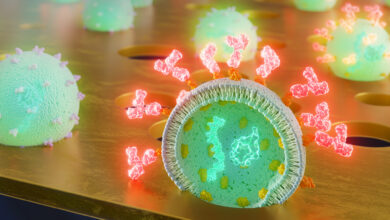Science Saturday: What you should know about genetics, colorectal cancer

Colorectal cancer begins when healthy cells within the colon or rectum develop mutations, or modifications, of their DNA. These broken cells then turn into cancerous, develop and divide uncontrollably, and type a tumor. Genetic components play a job on this course of.
Some gene mutations handed via generations of your loved ones can improve your danger of colorectal cancer considerably. The commonest inherited syndromes that improve colorectal cancer danger are familial adenomatous polyposis and Lynch syndrome, also called hereditary nonpolyposis colorectal cancer. But you do not want a household historical past of colorectal cancer to have a genetic mutation that would trigger the illness.
“Someone can have developed a mutation in their germ line and be the first person in the family to have colorectal cancer,” says Lisa Boardman, M.D., a gastroenterologist and hepatologist at Mayo Clinic. “Family history is not the end of the story.”
Here’s what consultants at Mayo Clinic need you to know about genetics and colorectal cancer, the third main explanation for cancer-related deaths within the U.S., in response to the National Cancer Institute.
Read the remainder of the article on the Mayo Clinic Cancer Center weblog.
____________________________________________
Other Mayo Clinic medical analysis web sites:





